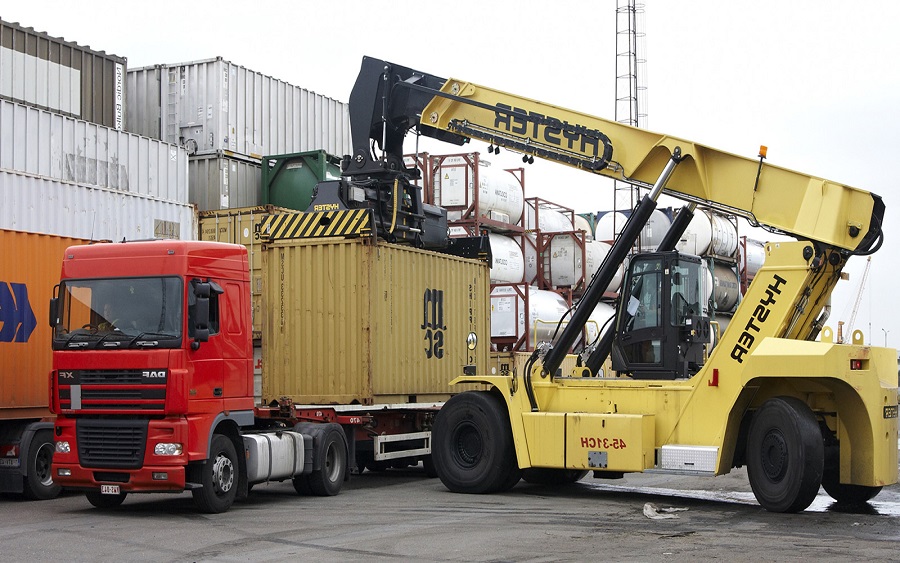China’s economic exploits across Africa have continued to fascinate observers. Here in Nigeria, the Asian superpower has been able to successfully establish itself as an important ally, a situation that has resulted in some very positive outcomes.
One of the outcomes of the economic partnership between Nigeria and China is the growing number of Chinese-owned enterprises in the country. Typical examples include the likes of Boomplay, Opera (and its many subsidiaries), and CWay among others.
Focus on Boomplay’s success
The rate at which Chinese companies are expanding in Nigeria is something that should be emulated. As you may recall, Nairametrics reported last month that Boomplay was set to expand into some Francophone African countries. The move came after the Chinese-owned music streaming company had consolidated on its Nigerian operation, thanks to the millions of dollars’ worth of investment funding which it recently secured.

The company’s recent partnership with Warner Music gave it an edge over competitors by allowing it to bring international contents to Africa. This is part of the company’s strategic effort to become a one-stop-shop for local and global contents.
The Opera family is also doing well
As you can expect, Chinese-owned companies in Nigeria specialise in offering solutions to basic Nigerian problems, thereby creating value in return. In the case of OPay, which is a subsidiary of Opera, the company has brought so much vigour into the Nigerian payment ecosystem within a rather short period of time.
[READ MORE: Quoted Companies post N4.2 trillion combined profits since 2015]
While its competitors like Paga and QuickTeller agents use kiosks and other means to remain visible, OPay developed “nearby agent”, an in-app feature for finding agents. It uses GPS to connect users with the nearest agents.
Along with its components such as ORide (a bike-hailing service) and OFood, which specialises in food delivery, the company has continued to expand. In the meantime, the parent company (Opera), which was bought over by its current Chinese owners from some Norwegian owners in 2016, has continued to be the internet browser of choice for many Nigerians.
Other notable Chinese companies
In the same vein, CWay Nigeria Drinking Water Science & Technology Co. Ltd came into the Nigerian market in 1999. Although the Nigerian portable water industry was already saturated at that time, the Chinese-owned company was able to create a niche for itself. Since then, it has diversified its operation in Nigeria with the launch of several beverage brands, even as it has also expanded operations into five other countries including Kenya.
Let’s not even talk about the story of Huawei, the globally successful phone manufacturer and ICT infrastructure company which has long established its presence in Africa’s most populous country. Perhaps the success of Huawei in Nigeria is what motivated several other Chinese companies to set up shop here.

Back to the issue at hand…
That said, it is important to note that the ability of these Chinese companies to meet basic needs in Nigeria is not necessarily the only factor behind their success. After all, there are many Nigerian businesses (with good business models) that are still struggling to survive despite many years of being in operation. Let’s not even talk about the thousands of Nigerian entrepreneurs with incredible business ideas whose businesses have yet to take off.
What secrets are the Chinese using?
Well, apart from their viable business models, another thing that is really helping Chinese companies in Nigeria is easy access to funding. According to a report published by the Institute of Developing Economies, which is under the Japan External Trade Organisation, China’s financial institutions play an immense role when it comes to supporting Chinese businesses in Africa.
The likes of Industrial and Commercial Bank of China, the China Export-Import Bank, the China Development Bank, etc., are reportedly willing to stake parts of the huge financial resources at their disposal just to support Chinese enterprises in Nigeria and elsewhere.
“Critical to China’s economic successes in Africa has been the important use of the country’s state backed banking institutions. Under-pinning the aggressive buy-out of foreign resource companies, mineral and energy reserves and large institutional investment projects in the continents oil and infrastructure sectors, are a phalanx of state funding agencies supported by massive national reserves of accumulated liquidity of over US$2 trillion, ready to be shifted into the global market at a moment’s notice.”
This is probably nothing new, especially to those in the know. However, it underscores a very important point – the fact that adequate funding is necessary for business growth and success.
[READ ALSO: Indigenous companies, Oando and JV Partner Promote Health Initiative in Kwale Delta]

What Nigeria should learn from this?
Again, let it be argued here that the greatest problem facing Nigerian entrepreneurship is not the dearth of viable business plans, but the absence of adequate funding. There are many business plans by Nigerians that could solve Nigeria’s problems. Sadly, not enough funds are readily available to finance these business ideas. Unfortunately, no business can succeed without adequate funding.
The issue of lack of adequate funding for Nigerian businesses by Nigeria’s financial institutions is so serious that majority of the country’s tech ecosystem is built almost exclusively with foreign capital. This situation has elicited concerns from stakeholders, with a Nigerian VC expert (Abasiama Idaresit) highlighting its problematics.
That said, it is high time Nigeria’s financial institutions began to try harder to provide financial support to Nigerian businesses. This is the only way they too can succeed like their Chinese counterparts. Already, the Central Bank of Nigeria has given the country’s lenders till next month to ensure that they maintain a loan-to-deposit ratio of 65%.
If this directive is strictly implemented by the CBN and adhered to by the lenders, it will go a long way towards ensuring that entrepreneurs in the country are availed access to finance. This will, in turn, enable them to grow/expand their businesses.





















